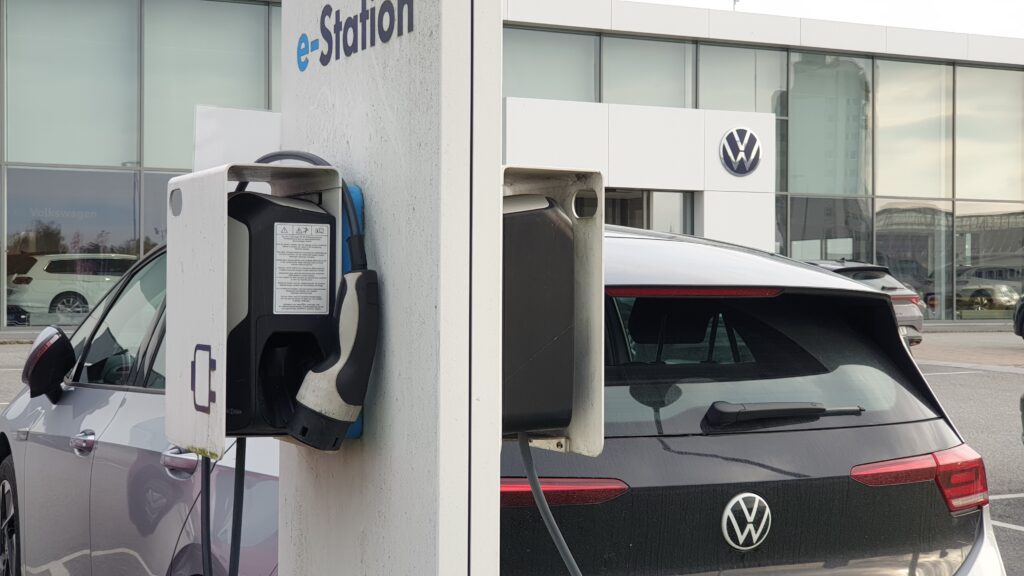Volkswagen and Rivian have partnered in a $5.8 billion deal to bring Rivian’s electric vehicle technology to Volkswagen’s models. The collaboration will help both companies scale up production and compete in the global EV market.
Volkswagen Group has secured a groundbreaking partnership with American electric vehicle (EV) maker Rivian in a deal valued at $5.8 billion (€5.5 billion). This alliance marks a significant step for both companies as they strive to make a larger impact in the growing electric vehicle market. The agreement will allow Volkswagen to integrate Rivian’s EV technology into its lineup, while Rivian gains crucial financial support as it prepares for the launch of its R2 model in 2025.
Rivian Sees a Path Forward with Volkswagen’s Investment
Despite Rivian’s early struggles, including production delays, parts shortages, and recalls, the partnership with Volkswagen offers much-needed financial backing and increased opportunities for scaling production. Rivian has garnered attention with models like the R1T pickup and R1S SUV but faces challenges in increasing its output.
With the $5.8 billion deal, Rivian is set to receive critical funding that will help it ramp up production ahead of the R2 model’s debut. The announcement has already sparked optimism, with Rivian’s stock jumping 9% in pre-market trading, signaling confidence in the potential success of the collaboration.
Volkswagen and Rivian are targeting a 2027 launch for vehicles featuring Rivian’s technology, initially focusing on operations in California before expanding into Europe and North America.
Addressing Increased Competition and Market Challenges
The partnership comes at a pivotal moment for both companies, as European automakers, including Volkswagen, face rising competition from Chinese electric vehicle manufacturers. Additionally, demand for EVs has slowed globally, creating challenges for automakers reliant on electric models. To counter these pressures, Volkswagen and Rivian are combining resources to optimize production processes, lower costs, and improve operational efficiency.
Both companies have faced supply chain issues—Rivian with factory development and Volkswagen with declining sales in China. Together, they aim to strengthen their ability to navigate these hurdles by focusing on cost-cutting and bolstering manufacturing capabilities.
Leadership Voices on the Volkswagen Rivian Partnership
Rivian CEO RJ Scaringe expressed optimism about the partnership, stating, “This deal is a critical step in accelerating the global transition to electric vehicles. We are thrilled that our technology will be part of more vehicles and look forward to expanding our reach worldwide.”
Volkswagen CEO Oliver Blume added, “This partnership is a key element of our long-term software strategy. By joining forces with Rivian, we are strengthening our global position in the EV market and will be able to offer innovative, high-quality vehicles at competitive prices.”
Looking Ahead: What’s Next for Volkswagen and Rivian?
The Volkswagen-Rivian alliance holds promise for the future of electric mobility. With plans to launch vehicles powered by Rivian’s technology by 2027, the partnership positions both companies as major players in the rapidly evolving electric vehicle sector.
However, success will depend on overcoming ongoing challenges such as market competition, supply chain issues, and cost pressures. By leveraging each other’s strengths, Volkswagen and Rivian aim to secure a dominant position in the future of the electric vehicle market.
Key Takeaways:
- Volkswagen and Rivian have entered a $5.8 billion partnership, integrating Rivian’s EV technology into Volkswagen’s vehicles.
- Rivian gains vital funding to prepare for the launch of its R2 model in 2025.
- The partnership addresses increased competition from Chinese automakers and a global slowdown in EV demand.
- The companies plan to roll out vehicles featuring Rivian’s technology by 2027, starting in California and later expanding to Europe and North America.
What’s your opinion on the Volkswagen-Rivian partnership? Will this deal help them stay competitive in the evolving EV market? Let us know your thoughts in the comments!
